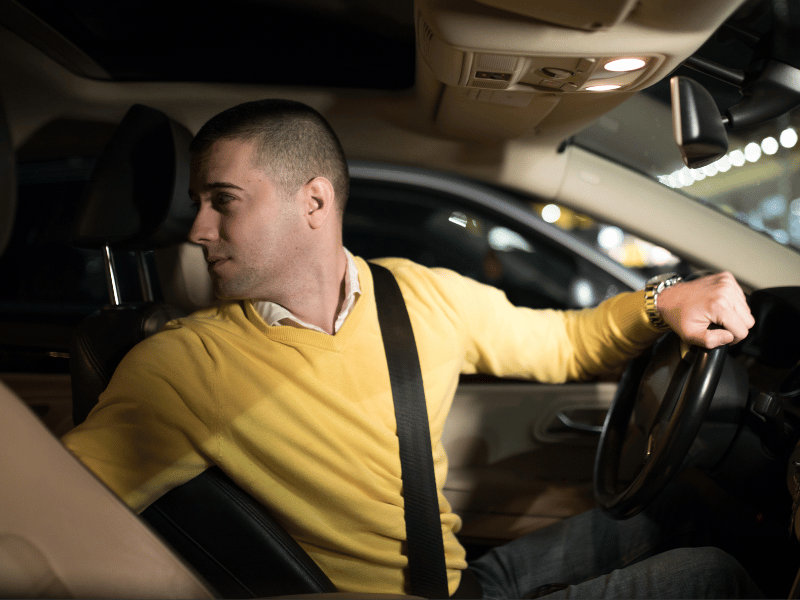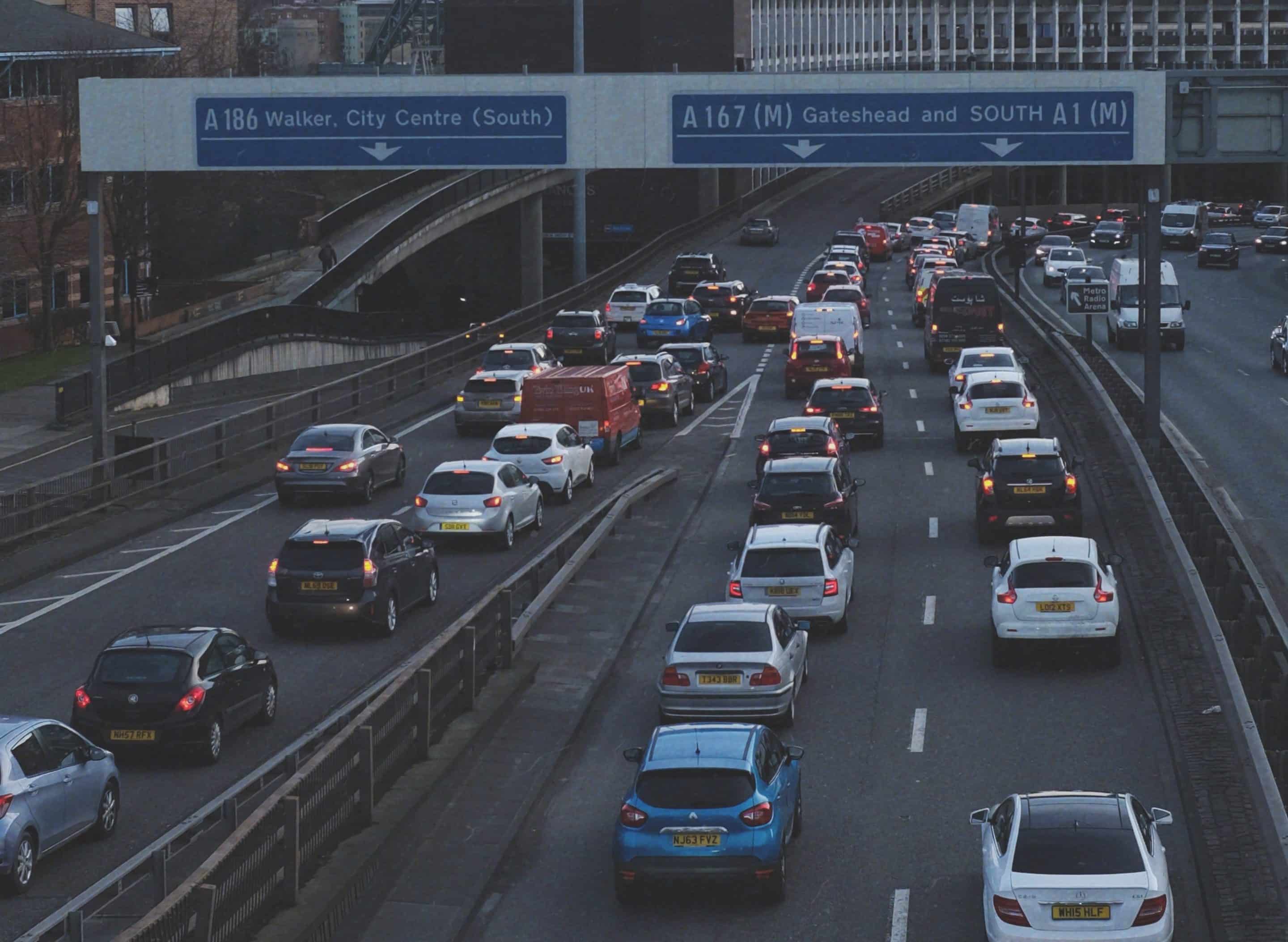With driving being a part of our daily routines, it’s important to know what you can and can’t do when being on the road. You should be familiar with all the road rules in the UK, even the ones that seem too strange to be true!
In this article, we will be answering some of the most commonly asked questions regarding road rules in the UK. He’ll be dispelling some of the UK’s most infamous driving myths and ensuring that you avoid any potential fines for rules you were originally unaware of.
Can you use your phone to pay at a drive-through?
With the Highway Code changes earlier this year, a primary focus for the government was to crack down on mobile phone usage whilst driving. This now means that handling any device in your car, whilst not parked safely, is against the law.
However, road rules in the UK tend to have exceptions. In this case, the government made sure to elaborate on mobile phone usage when making payments at a drive-thru as it is becoming more and more commonplace.
On GOV.UK, it states that: “You can use a device held in your hand if […] you’re making a contactless payment in a vehicle that is not moving, for example at a drive-through restaurant.”
One question still remains though – when is a vehicle not moving? Does the engine need to be off? Do you have to apply the handbrake?
The road rules in the UK simply state that you can pay with your phone when the vehicle is stationary. It makes no note of the engine and handbrake.
Importantly, this definition does not apply whilst you are in traffic. If you’re not in a drive-thru, ensure that you park safely before handling any device in the driver’s seat.
What counts as a device?
A device is anything that can send or receive data. Common examples include phones, sat navs, tablets or handheld videogame consoles.
Even if you are using something that cannot send or receive data, engaging with anything distracting may still leave you liable for a fine.
How far are you allowed to reverse?
 Reversing plays a big role in your average driver’s daily routine, but how far can you legally reverse your car? For example, if your forward gears stopped working, could you reverse all the way home?
Reversing plays a big role in your average driver’s daily routine, but how far can you legally reverse your car? For example, if your forward gears stopped working, could you reverse all the way home?
Whilst obviously an extreme example, it’s important to see how far road rules in the UK can actually protect you.
If you were to go with The Highway Code’s rather ambiguous definition, it sounds like it’s legal. It states that:
“You must not reverse your vehicle further than necessary”
So in our scenario, as our front gears no longer work, you might deem it ‘necessary’. However, you would in fact be wrong to do this. The Road Vehicles Regulations 1986 tells us that:
“No person shall drive, or cause or permit to be driven, a motor vehicle backwards on a road further than may be requisite for the safety or reasonable convenience of the occupants of the vehicle or other traffic”
As driving in reverse severely hinders your vision of the road, you would be affecting the safety of yourself and other road users.
What about a less convoluted scenario? Let’s say you have to reverse thirty metres to allow a HGV to pass. Is it legal to do so? I would say that this is necessary, as you’re doing so to avoid any potential accidents.
A lot of these scenarios, applicable to nearly all of these road rules in the UK, are left to the discretion of the traffic police. If they deem the manoeuvre to be dangerous to other road users, you might be facing a fine or points on your license.
In more serious cases, where you reverse on a dual carriageway or motorway, the fine extends up to £2,500. Of course, if it was an emergency, you can claim you had to reverse the car to avoid a potential accident.
When are you not allowed to sound your horn?
Being synonymous with the frustrations of road users worldwide, the car horn is the most common way to vent anger whilst behind the wheel. Contrary to popular belief though, it’s technically illegal to sound your horn in annoyance at other drivers.
 As the road rules of the UK state, you should only sound a horn when alerting others of danger. Examples of where this is applicable include:
As the road rules of the UK state, you should only sound a horn when alerting others of danger. Examples of where this is applicable include:
- A vehicle is about to reverse into you
- Pedestrians are at risk of being hit
- A vehicle is merging without looking
The police can issue you a warning through Section 59 of the Road Traffic Act if they deem your horn usage to be:
“causing, or likely to cause alarm, distress or annoyance to members of the public”
This warning stays against the driver and vehicle for a year, meaning that if you were to receive further notice in this period, the police may seize your car.
Aside from venting frustrations, you must not use your horn if:
- You’re stationary on the road
- You’re driving in a built-up area late at night (between the hours of 11:30 pm and 7 am)
If in an emergency however, you can use your horn if necessary.
Actual cases of this are few and far between. As recorded by the Metropolitan Police, between 2015-2020, there were only an average of 9 prosecutions per year for misuse of a car horn.
When may you overtake another vehicle on the left?
Generally known as undertaking, it is usually never legal to overtake a vehicle on the left. It tends to be dangerous to do so, as road users don’t expect vehicles to appear from their left suddenly, thus not checking their mirrors thoroughly enough.
Nevertheless, there are some exceptions to the road rules in the UK when looking to overtake in a slower lane. These are:
Traffic is travelling faster in the left lane
 On motorways, it’s common for congestion to bring traffic to a standstill, meaning the left lanes may free up faster than the right ones.
On motorways, it’s common for congestion to bring traffic to a standstill, meaning the left lanes may free up faster than the right ones.
In this case, it’s perfectly fine to use the left lane to undertake in order to keep the flow of traffic moving. If doing so, be mindful of any cars that pull out without double-checking their mirrors.
The vehicle ahead is turning right
If the road user ahead of you is taking the next right turn, you can overtake on the left. You should only do so if there is enough space to get past the vehicle.
When committing to such a manoeuvre, ensure that you check for any cyclists or other road users that may be hard to spot, as they could be overtaking you.
When may you drive over a pavement?
Road rules in the UK are more than clear about when vehicles can drive on the pavement. There are two exceptions as to when a driver can go on the pavement:
- To gain lawful access to a property
- In the case of an emergency
In some cases, it is illegal to park on the pavement. In congested cities like London, the road rules in the UK state that you should not park wholly or partially on the pavement.
Quieter areas tend to be more lax about letting road users park on the pavement. Before doing so, check for any signs that indicate a potential fine for doing so.
Is it illegal to drive in flip-flops?
 Despite the common myth of flip-flops being illegal to drive in, it’s technically not against any of the road rules in the UK. There are no laws that specifically target the use of such footwear.
Despite the common myth of flip-flops being illegal to drive in, it’s technically not against any of the road rules in the UK. There are no laws that specifically target the use of such footwear.
In spite of that, the Highway Code does have a slightly vague rule on the use of limiting clothing or accessories. Rule 97 states that:
“clothing and footwear do not prevent you using the controls in the correct manner”
The Driving Standards Agency also suggests that:
“suitable shoes are particularly important behind the wheel. We would not recommend driving barefoot because you don’t have the same braking force with bare feet as you do with shoes on.”
So whilst some drivers may be fine in flip-flops, others may find it much harder. This depends entirely on a combination of the driver, the footwear and the pedals of the vehicle.
To stay in line with these rules, your footwear should:
- Provide enough grip to stop your foot from slipping
- Not be too constricting or heavy
- Not limit ankle movement
- Have a sole no thicker than 10mm but also one that is not too thin
- Not be wide enough to press two pedals at once
So, whilst it’s not illegal, we’d recommend not driving in flip-flops in order to avoid any potential accidents.
With any driving-related offence, breaking one of the road rules in the UK could lead to a fine or points on your license. Whilst it may seem minor, these can add up – and quite quickly at that.











Comments
Didn’t realise that about the flip-flops! I’m definitely a rule breaker then lol!
Leave a comment Your email address will not be published.